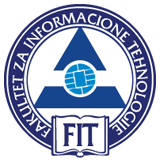ORIENTATION: INFORMATION SYSTEMS
V SEMESTER
| Course | Software engineering | ||||
| Study program | Academic Studies: Information Systems | ||||
| Status | Obligatory | Semester | Winter(V) | ECTS/CSPK | 6 |
| Description | The course covers fundamentals of software engineering using a group project as the basic vehicle. Topics covered include software process and models, managing complexity, requirements specification, architectural and detailed design, testing and analysis, CASE tools and environments for modelling software systems. Students will learn to solve practical problems of specifying, designing, and building large, reliable software systems. |
||||
| Preconditions | Basic knowledge of object oriented programming | ||||
| Teaching methods | This course will include lectures, practical exsercises, in-class discussions, case studies, presentations, guest speakers, individual student research and short presentation, and a group project presentation. Use of the Moodle Learning platform to further support communication, by posting lecture notes, assignment instruction, timely announcements, and online submission of assignments. |
||||
| Course | Programming web and mobile applications | ||||
| Study program | Academic Studies: Information Technology orientation: Software Engineering | ||||
| Status | Elective | Semester | Summer(VIII) | ECTS/CSPK | 6 |
| Description | After completing the course you will be able to independently create simpler GUI mobile apps, and publish them on the Market. The course describes the use of the environment for creating mobile applications and creating them. Elementary concepts related to mobile platforms will be clarified and their use described. The attendee will learn how to create simple mobile applications with the help of development tools / programs for the Android mobile platform Eclipse and Android SDK and starts them on the emulator or the real device. Objectives of the course are:
| ||||
| Preconditions | No Preconditions | ||||
| Teaching methods | Lectures, exercises and laboratory exercises. | ||||
| Course | Software Project Management | ||||
| Study program | Academic Studies: Information Technology orientation: Software Engineering | ||||
| Status | Obligatory | Semester | Winter(V) | ECTS/CSPK | 6 |
| Description | Through studying the topics envisaged by this curriculum, students should adopt knowledge from the basics of methodology of managing software projects, advanced platform neutral modelling of object-oriented software applications by using UML, rules of good design of object-oriented softwares using the design of pattern and rules for writing a quality object-oriented code through refactoring. The ultimate goal is to train students for successful understanding of advanced techniques and application development methods. | ||||
| Preconditions | Passed exam in Software Engineering. Mastered material in detail from the course Programming I and II, Web programming, as well as sufficient knowledge of materials from the course Data structures and algorithms. | ||||
| Teaching methods | Lectures, practical classes, seminars, homework, colloquium and final exam. Consultations. | ||||
| Course | English Language 5 | ||||
| Study program | Academic Studies: Information Technology | ||||
| Status | Obligatory | Semester | Winter(V) | ECTS/CSPK | 3 |
| Description | Development and improvement of students’ English language skills in the context of Information and Communication Technology at intermediate language level. | ||||
| Preconditions | n/a | ||||
| Teaching methods | Lectures, seminars, project, reading, mid-term exams, final exam. Consultations. | ||||
| Course | XML technologies | ||||
| Study program | Academic studies: Information systems | ||||
| Status | Obligatory | Semestar | Winter(IV) | ECTS/CSPK | 6 |
| Description | This course introduces basic concepts of XML technologies. Students will acquire the necessary theoretical and practical knowledge, and they will be able to use XML technologies in software systems. | ||||
| Preconditions | No preconditions | ||||
| Teaching methods | lectures, exercises, consultations, colloquiums and final exam | ||||
VI SEMESTER
| Course | English Language 6 | ||||
| Study program | Academic Studies: Information Technology | ||||
| Status | Obligatory | Semester | Summer(VI) | ECTS/CSPK | 3 |
| Description | Development and improvement of students’ English language skills in the context of Information and Communication Technology at intermediate language level. | ||||
| Preconditions | n/a | ||||
| Teaching methods | Lectures, seminars, project, reading, mid-term exams, final exam. Consultations. | ||||
| Course | Human Computer Interaction (HCI) | ||||
| Study program | Academic studies: Information Systems | ||||
| Status | Obligatory | Semester | Summer(VI) | ECTS/CSPK | 5 |
| Description | Human-Computer Interaction (HCI) is concerned with the design, evaluation and implementation of interactive computing systems for human use and with the study of major phenomena surrounding them. On the practical side, this means the principles and methods with which one builds effective user interfaces. A basic precept of HCI is that users should be able to get things done through the computer, without having to pay attention to the intricacies of complex software. Interfaces must be accessible, meaningful, visually consistent, comprehensive, accurate, and oriented around the tasks that users tend to perform. The course will provide a balance of practical and theoretical knowledge, giving students experience ordinarily not provided by other courses in computer science. | ||||
| Preconditions | There are no formal prerequisites, but in order to successfully follow lectures and master the field, students need a basic knowledge of Software and Information Systems Design. | ||||
| Teaching methods | This course will include lectures, practical exercises, in-class discussions, case studies, presentations, guest speakers, individual student research and short presentation, and a final group project presentation. Use of the Moodle Learning platform to further support communication, by posting lecture notes, assignment instruction, timely announcements, and online quizzes or submission of assignments. | ||||
| Course | Intelligent systems | ||||
| Study program | Academic Studies: Information Technology | ||||
| Status | Obligatory | Semester | Summer(VI) | ECTS/CSPK | 6 |
| Description | Mastering the basic concepts, techniques, languages and tools for creating intelligent software systems | ||||
| Preconditions | There are no preconditions, but it is desirable for students to master the material of the subject of XML technology | ||||
| Teaching methods | Lectures, exercises, homework. | ||||
| Course | Information systems design | ||||
| Study program | Academic studies: Information systems | ||||
| Status | Obligatory | Semester | Summer(VI) | ECTS/CSPK | 6 |
| Description | The focus of this course is on introducing the entire process of designing information system from user requirements to functional modelling of the process. One of the objectives of the course is to students acquire knowledge and skills in the domain of the information system development process. Applying UML concepts, students will be trained to model user requirements, analyse, design and develop information systems. For the development of service-oriented applications, the concept of service-oriented architecture is introduced. | ||||
| Preresquisites | No prerequisites | ||||
| Teaching methods | Lectures, seminars, labs, colloquiums and final exam. Consultations | ||||
| Course | Project | ||||
| Study program | Academic studies: Information systems | ||||
| Status | Obligatory | Semester | Summer(VI) | ECTS/CSPK | 4 |
| Description | The student, in cooperation with the professor who is the mentor in the design of the project, identifies the problem from the practice in the field of information and communication technologies which can be solved using the acquired knowledge in basic studies. The student's independent work on the project development demonstrates the practical application of knowledge and develops / implements a solution that provides a quantitative and qualitative assessment of the overall knowledge acquired in the field of ICT with special qualifications in the field of information (information systems, computer networks, software engineering) | ||||
| Preresquisites | The student can take the exam only after previously passing all subjects at the undergraduate studies. | ||||
| Teaching methods | Lectures, exercises and laboratory exercises | ||||
| Course | Security and Protection of Information Systems | ||||
| Study program | Academic studies: Information systems | ||||
| Status | Obligatory | Semester | Summer(VI) | ECTS/CSPK | 6 |
| Description | Acquiring knowledge in the field of security and protection of information systems. Students will be presented with possible methods of protection, as well as potential risks of compromising information systems. | ||||
| Prerequisites | No prerequisites | ||||
| Teaching methods | Teaching is performed through lectures, discussions with application of multimedia content and application of methods for distance education. Practical classes include practical work with selected e-learning tools and project assignment with application of selected tools and technologies, analysis of selected case studies. | ||||
ELECTIVE COURSES
| Naziv predmeta | Administracija IS | ||||
| Studijski program | Akademske studije: Informacione tehnologije, smjer: Informacioni sistemi | ||||
| Status predmeta | obavezni | Semestar | V | ECTS/CSPK | 5 |
| Sadržaj predmeta (ciljevi izučavanja predmeta) | Studenti treba da ovladaju znanjima i tehnikama iz oblasti administracije IS-a. Treba da usvoje tehnike koje se bave metodološkim i tehnološkim, apsektima u oblasti sistemske i mrežne administracije. | ||||
| Uslovljenost drugim predmetima | Nema uslovljenosti | ||||
| Metod nastave i savladavanja gradiva | Predavanja i laboratorijske vježbe. | ||||
Course | Program translators | ||||
| Study program | Academic Studies: Information Technology, orientation: Information systems | ||||
| Status | Elective | Semester | Winter(V) | ECTS/CSPK | 5 |
| Description | Introduce students with the basics of creating a compiler. Translating one programming language to another, using a compiler. Using the tools for creating a compiler and familiarizing students with the way they are implemented. | ||||
| Preconditions | No preconditions | ||||
| Teaching methods | Lectures, exercises and work on the project. | ||||
| Naziv predmeta | Održavanje informacionih sistema | ||||
| Studijski program | Akademske studije: Informacione tehnologije, smjer: Informacioni sistemi |
||||
| Status predmeta | obavezni | Semestar | VI | ECTS/CSPK | 5 |
| Sadržaj predmeta (ciljevi izučavanja predmeta) | Sticanje znanja iz oblasti održavanja informacionih sistema. Studentima će biti predočeni mogući modeli održavanja, kao i tehnologije održavanja | ||||
| Uslovljenost drugim predmetima | Nema uslovljenosti | ||||
| Metod nastave i savladavanja gradiva | Predavanja, vjezbe, kolokvijumi i završni ispit. Konsultacije | ||||
| Naziv predmeta | Poslovni informacioni sistemi | ||||
| Studijski program | Akademske studije: Informacione tehnologije | ||||
| Status predmeta | izborni | Semestar | VI | ECTS/CSPK | 5 |
| Sadržaj predmeta (ciljevi izučavanja predmeta) | Cilj predmeta Poslovni informacioni sistemi jeste da upozna studente sa osnovnom strukturom, funkcionisanjem i koncepcijom savremenih poslovnih informacionih sistema. | ||||
| Uslovljenost drugim predmetima | Nema uslovljenosti | ||||
| Metod nastave i savladavanja gradiva | Predavanja i laboratorijske vježbe | ||||
| Naziv predmeta | Multimedijalni sistemi | ||||
| Studijski program | Akademske studije: Informacione tehnologije | ||||
| Status predmeta | izborni | Semestar | VI | ECTS/CSPK | 6 |
| Sadržaj predmeta (ciljevi izučavanja predmeta) | Upoznavanje studenta sa svim aspektima savremenih multimedijalnih informacionih sistema. | ||||
| Uslovljenost drugim predmetima | Nema uslovljenosti | ||||
| Metod nastave i savladavanja gradiva | Nastava se odvija kroz predavanja, diskusije uz primjenu multimedijalnih sadržaja i primjenom metoda za daljinsko obrazovanje. Vježbe obuhvataju praktičan rad sa izabranim alatima za e-učenje i projektni zadatak uz primjenu izabranih alata i tehnologija, analizu odabranih studija slučajeva. | ||||
ORIENTATION: SOFTWARE ENGINEERING
V SEMESTER
| Course | Software engineering | ||||
| Study program | Academic Studies: Software Engineering | ||||
| Status | Obligatory | Semester | Winter(V) | ECTS/CSPK | 6 |
| Description | The course covers fundamentals of software engineering using a group project as the basic vehicle. Topics covered include software process and models, managing complexity, requirements specification, architectural and detailed design, testing and analysis, CASE tools and environments for modelling software systems. Students will learn to solve practical problems of specifying, designing, and building large, reliable software systems. | ||||
| Preconditions | Basic knowledge of object oriented programming | ||||
| Teaching methods | This course will include lectures, practical exsercises, in-class discussions, case studies, presentations, guest speakers, individual student research and short presentation, and a group project presentation. Use of the Moodle Learning platform to further support communication, by posting lecture notes, assignment instruction, timely announcements, and online submission of assignments. | ||||
| Course | Programming web and mobile applications | ||||
| Study program | Academic Studies: Information Technology orientation: Software Engineering | ||||
| Status | Elective | Semester | Winter(V) | ECTS/CSPK | 6 |
| Description | After completing the course you will be able to independently create simpler GUI mobile apps, and publish them on the Market. The course describes the use of the environment for creating mobile applications and creating them. Elementary concepts related to mobile platforms will be clarified and their use described. The attendee will learn how to create simple mobile applications with the help of development tools / programs for the Android mobile platform Eclipse and Android SDK and starts them on the emulator or the real device. Objectives of the course are:
| ||||
| Preconditions | No Preconditions | ||||
| Teaching methods | Lectures, exercises and laboratory exercises. | ||||
| Naziv predmeta | Kontrola kvaliteta i testiranje softvera | ||||
| Studijski program | Specijalističke studije: Informacione tehnologije | ||||
| Status predmeta | izborni | Semestar | VI | ECTS/CSPK | 5 |
| Sadržaj predmeta (ciljevi izučavanja predmeta) | Studenti se obučavaju za ovladavanje upravljanjem kvalitetom softvera | ||||
| Uslovljenost drugim predmetima | Nema uslovljenosti | ||||
| Metod nastave i savladavanja gradiva | |||||
| Course | Software Project Management | ||||
| Study program | Academic Studies: Information Technology orientation: Software Engineering | ||||
| Status | Obligatory | Semester | Winter(V) | ECTS/CSPK | 6 |
| Description | Through studying the topics envisaged by this curriculum, students should adopt knowledge from the basics of methodology of managing software projects, advanced platform neutral modelling of object-oriented software applications by using UML, rules of good design of object-oriented softwares using the design of pattern and rules for writing a quality object-oriented code through refactoring. The ultimate goal is to train students for successful understanding of advanced techniques and application development methods. | ||||
| Preconditions | Passed exam in Software Engineering. Mastered material in detail from the course Programming I and II, Web programming, as well as sufficient knowledge of materials from the course Data structures and algorithms. | ||||
| Teaching methods | Lectures, practical classes, seminars, homework, colloquium and final exam. Consultations. | ||||
| Course | English Language 5 | ||||
| Study program | Academic Studies: Information Technology | ||||
| Status | Obligatory | Semester | Winter(V) | ECTS/CSPK | 3 |
| Description | Development and improvement of students’ English language skills in the context of Information and Communication Technology at intermediate language level. | ||||
| Preconditions | n/a | ||||
| Teaching methods | Lectures, seminars, project, reading, mid-term exams, final exam. Consultations. | ||||
| Course | XML technologies | ||||
| Study program | Academic studies: Information systems | ||||
| Status | Obligatory | Semestar | Winter(IV) | ECTS/CSPK | 6 |
| Description | This course introduces basic concepts of XML technologies. Students will acquire the necessary theoretical and practical knowledge, and they will be able to use XML technologies in software systems. | ||||
| Preconditions | No preconditions | ||||
| Teaching methods | lectures, exercises, consultations, colloquiums and final exam | ||||
VI SEMESTER
| Course | Security and Protection of Software | ||||
| Study program | Academic studies: Information systems | ||||
| Status | Obligatory | Semester | Summer(VI) | ECTS/CSPK | 6 |
| Description | Introduce students with technical means for implementation of certain forms of protection and security of information systems. Students acquire knowledge in setting up certain security measures, as well as the way of creating and managing the protection of software system. | ||||
| Prerequisites | Software engineering | ||||
| Teaching methods | Lectures and laboratory exercises | ||||
| Course | Software design and development | ||||
| Study program | Academic studies: Information Technologies Orientation: Software Engineering | ||||
| Status | Obligatory | Semester | Summer(VI) | ECTS/CSPK | 6 |
| Description | Through the course students will master knowledge and techniques in the field of software engineering and software development. The objective of this course is to introduce methodological and technological aspects in the field of software products development. | ||||
| Prerequisites | Software engineering | ||||
| Teaching methods | Lectures, seminars, labs, colloquiums and final exam. Consultations | ||||
| Course | Project | ||||
| Study program | Academic studies: Information systems | ||||
| Status | Obligatory | Semester | Summer(VI) | ECTS/CSPK | 4 |
| Description | The student, in cooperation with the professor who is the mentor in the design of the project, identifies the problem from the practice in the field of information and communication technologies which can be solved using the acquired knowledge in basic studies. The student's independent work on the project development demonstrates the practical application of knowledge and develops / implements a solution that provides a quantitative and qualitative assessment of the overall knowledge acquired in the field of ICT with special qualifications in the field of information (information systems, computer networks, software engineering) | ||||
| Preresquisites | The student can take the exam only after previously passing all subjects at the undergraduate studies. | ||||
| Teaching methods | Lectures, exercises and laboratory exercises | ||||
| Course | Intelligent systems | ||||
| Study program | Academic Studies: Information Technology | ||||
| Status | Obligatory | Semester | Summer(VI) | ECTS/CSPK | 6 |
| Description | Mastering the basic concepts, techniques, languages and tools for creating intelligent software systems | ||||
| Preconditions | There are no preconditions, but it is desirable for students to master the material of the subject of XML technology | ||||
| Teaching methods | Lectures, exercises, homework. | ||||
| Course | Human Computer Interaction (HCI) | ||||
| Study program | Academic studies: Software Engineering | ||||
| Status | Obligatory | Semester | Summer(VI) | ECTS/CSPK | 5 |
| Description | Human-Computer Interaction (HCI) is concerned with the design, evaluation and implementation of interactive computing systems for human use and with the study of major phenomena surrounding them. On the practical side, this means the principles and methods with which one builds effective user interfaces. A basic precept of HCI is that users should be able to get things done through the computer, without having to pay attention to the intricacies of complex software. Interfaces must be accessible, meaningful, visually consistent, comprehensive, accurate, and oriented around the tasks that users tend to perform. The course will provide a balance of practical and theoretical knowledge, giving students experience ordinarily not provided by other courses in computer science. | ||||
| Preconditions | There are no formal prerequisites, but in order to successfully follow lectures and master the field, students need a basic knowledge of Software and Information Systems Design. | ||||
| Teaching methods | This course will include lectures, practical exercises, in-class discussions, case studies, presentations, guest speakers, individual student research and short presentation, and a final group project presentation. Use of the Moodle Learning platform to further support communication, by posting lecture notes, assignment instruction, timely announcements, and online quizzes or submission of assignments. | ||||
| Course | English Language 6 | ||||
| Study program | Academic Studies: Information Technology | ||||
| Status | Obligatory | Semester | Summer(VI) | ECTS/CSPK | 3 |
| Description | Development and improvement of students’ English language skills in the context of Information and Communication Technology at intermediate language level. | ||||
| Preconditions | n/a | ||||
| Teaching methods | Lectures, seminars, project, reading, mid-term exams, final exam. Consultations. | ||||
ELECTIVE COURSES
| Naziv predmeta | Multimedijalni sistemi | ||||
| Studijski program | Akademske studije: Informacione tehnologije | ||||
| Status predmeta | izborni | Semestar | VI | ECTS/CSPK | 6 |
| Sadržaj predmeta (ciljevi izučavanja predmeta) | Upoznavanje studenta sa svim aspektima savremenih multimedijalnih informacionih sistema. | ||||
| Uslovljenost drugim predmetima | Nema uslovljenosti | ||||
| Metod nastave i savladavanja gradiva | Nastava se odvija kroz predavanja, diskusije uz primjenu multimedijalnih sadržaja i primjenom metoda za daljinsko obrazovanje. Vježbe obuhvataju praktičan rad sa izabranim alatima za e-učenje i projektni zadatak uz primjenu izabranih alata i tehnologija, analizu odabranih studija slučajeva. | ||||
| Naziv predmeta | Konfiguracija i održavanje softvera | ||||
| Studijski program | Akademske studije: Informacione tehnologije smjer: Softverski inženjering | ||||
| Status predmeta | obavezni | Semestar | VI | ECTS/CSPK | 5 |
| Sadržaj predmeta (ciljevi izučavanja predmeta) | Studenti se obučavaju praktično korišćenje nekog razvojnog okruženja u testiranju softvera | ||||
| Uslovljenost drugim predmetima | Položeni ispiti Programiranje II i Web programiranje | ||||
| Metod nastave i savladavanja gradiva | |||||
| Naziv predmeta | Kontrola kvaliteta i testiranje softvera | ||||
| Studijski program | Specijalističke studije: Informacione tehnologije | ||||
| Status predmeta | izborni | Semestar | VI | ECTS/CSPK | 5 |
| Sadržaj predmeta (ciljevi izučavanja predmeta) | Studenti se obučavaju za ovladavanje upravljanjem kvalitetom softvera | ||||
| Uslovljenost drugim predmetima | Nema uslovljenosti | ||||
| Metod nastave i savladavanja gradiva | |||||
| Course | Compilers | ||||
| Study program | Academic studies: Information technologies Orientation: Software engineering |
||||
| Status | Obligatory | Semester | Winter(V) | ECTS/CSPK | 5 |
| Description | The course covers basic graphical elements creation, graphical processing of existing elements, developing and designing of web content, processing of photography and adopting for publishing on web or other media, working with digital multimedia presentations and graphics projects. | ||||
| Preconditions | None | ||||
| Teaching methods | Lectures, practice, workshops, home works, exams and consultations. | ||||
| Naziv predmeta | Distribuirani softverski sistemi | ||||
| Studijski program | Akademske studije: Informacione tehnologije, smjer: Softverski inženjering | ||||
| Status predmeta | izborni | Semestar | V | ECTS/CSPK | 5 |
| Sadržaj predmeta (ciljevi izučavanja predmeta) | Studenti se obučavaju za praktično korišćenje nekog razvojnog u testiranju softvera | ||||
| Uslovljenost drugim predmetima | Nema uslovljenosti | ||||
| Metod nastave i savladavanja gradiva | Položeni ispit Programiranje II i Web programiranje | ||||
ORIENTATION: COMPUTER NETWORKS AND TELECOMMUNICATIONS
V SEMESTER
| Course | Software engineering | ||||
| Study program | Academic Studies: Computer networks and telecommunications | ||||
| Status | Obligatory | Semester | Winter(V) | ECTS/CSPK | 6 |
| Description | The course covers fundamentals of software engineering using a group project as the basic vehicle. Topics covered include software process and models, managing complexity, requirements specification, architectural and detailed design, testing and analysis, CASE tools and environments for modelling software systems. Students will learn to solve practical problems of specifying, designing, and building large, reliable software systems. | ||||
| Preconditions | Basic knowledge of object oriented programming | ||||
| Teaching methods | This course will include lectures, practical exsercises, in-class discussions, case studies, presentations, guest speakers, individual student research and short presentation, and a group project presentation. Use of the Moodle Learning platform to further support communication, by posting lecture notes, assignment instruction, timely announcements, and online submission of assignments. | ||||
| Course | Telecommunication Systems | ||||
| Study program | Academic studies: Information Technologies Orientation: Computer Networks and Telecommunications | ||||
| Status | Obligatory | Semester | Winter(V) | ECTS/CSPK | 6 |
| Description | Introduction to the theory basics of transmission and processing of signals. Analysis of basic problems in signal transmission. Defining concepts important for understanding the functionality of modern telecommunications systems. Descriptions and review of the most representative telecommunications systems: their elements, technical principles on which they are based, characteristics and methods. Introduction to the architecture and organization of public and mobile telephony systems, functional and broadcasting systems. | ||||
| Preconditions | Passed exam of the course Computer telecommunications | ||||
| Teaching methods | Lectures, practice, workshops, home works, exams and consultations. | ||||
| Course | Servers Operating Systems | ||||
| Study program | Academic studies: Information Technologies Orientation: Computer Networks and Telecommunications | ||||
| Status | Obligatory | Semester | Winter(V) | ECTS/CSPK | 5 |
| Description | The course covers principles of work of servers operating systems used in Windows or Linux platforms and allows student to configure and run such systems. | ||||
| Preconditions | None | ||||
| Teaching methods | Lectures, practice, workshops, home works, exams and consultations. | ||||
| Course | Computer Network Administration | ||||
| Study program | Academic studies: Information Technologies | ||||
| Status | Obligatory | Semester | Winter(V) | ECTS/CSPK | 6 |
| Description | Introducing students to basic rules and procedures when administering computer networks. The course addresses the main characteristics of computer networks regardless of their size. Acquiring practical knowledge necessary for administering computer networks. Through examples from the practice, students will be introduced to the method of administering computer networks and adjusting network devices. Upon completion of the course, students will be able to independently apply acquired knowledge for design and configuration of computer networks. | ||||
| Prerequisites | No prerequisites | ||||
| Teaching methods | Lectures, seminars, labs, colloquiums and final exam. Consultations | ||||
| Course | English Language 5 | ||||
| Study program | Academic Studies: Information Technology | ||||
| Status | Obligatory | Semester | Winter(V) | ECTS/CSPK | 3 |
| Description | Development and improvement of students’ English language skills in the context of Information and Communication Technology at intermediate language level. | ||||
| Preconditions | n/a | ||||
| Teaching methods | Lectures, seminars, project, reading, mid-term exams, final exam. Consultations. | ||||
| Course | XML technologies | ||||
| Study program | Academic studies: Information systems | ||||
| Status | Obligatory | Semestar | Winter(IV) | ECTS/CSPK | 6 |
| Description | This course introduces basic concepts of XML technologies. Students will acquire the necessary theoretical and practical knowledge, and they will be able to use XML technologies in software systems. | ||||
| Preconditions | No preconditions | ||||
| Teaching methods | lectures, exercises, consultations, colloquiums and final exam | ||||
VI SEMESTER
| Course | English Language 6 | ||||
| Study program | Academic Studies: Information Technology | ||||
| Status | Obligatory | Semester | Summer(VI) | ECTS/CSPK | 3 |
| Description | Development and improvement of students’ English language skills in the context of Information and Communication Technology at intermediate language level. | ||||
| Preconditions | n/a | ||||
| Teaching methods | Lectures, seminars, project, reading, mid-term exams, final exam. Consultations. | ||||
| Course | Intelligent systems | ||||
| Study program | Academic Studies: Information Technology | ||||
| Status | Obligatory | Semester | Summer(VI) | ECTS/CSPK | 6 |
| Description | Mastering the basic concepts, techniques, languages and tools for creating intelligent software systems | ||||
| Preconditions | There are no preconditions, but it is desirable for students to master the material of the subject of XML technology | ||||
| Teaching methods | Lectures, exercises, homework. | ||||
| Course | Human Computer Interaction (HCI) | ||||
| Study program | Academic studies: Computer Networks and Telecommunications | ||||
| Status | Obligatory | Semester | Summer(VI) | ECTS/CSPK | 5 |
| Description | Human-Computer Interaction (HCI) is concerned with the design, evaluation and implementation of interactive computing systems for human use and with the study of major phenomena surrounding them. On the practical side, this means the principles and methods with which one builds effective user interfaces. A basic precept of HCI is that users should be able to get things done through the computer, without having to pay attention to the intricacies of complex software. Interfaces must be accessible, meaningful, visually consistent, comprehensive, accurate, and oriented around the tasks that users tend to perform. The course will provide a balance of practical and theoretical knowledge, giving students experience ordinarily not provided by other courses in computer science. | ||||
| Preconditions | There are no formal prerequisites, but in order to successfully follow lectures and master the field, students need a basic knowledge of Software and Information Systems Design. | ||||
| Teaching methods | This course will include lectures, practical exercises, in-class discussions, case studies, presentations, guest speakers, individual student research and short presentation, and a final group project presentation. Use of the Moodle Learning platform to further support communication, by posting lecture notes, assignment instruction, timely announcements, and online quizzes or submission of assignments. | ||||
| Course | Project | ||||
| Study program | Academic studies: Information systems | ||||
| Status | Obligatory | Semester | Summer(VI) | ECTS/CSPK | 4 |
| Description | The student, in cooperation with the professor who is the mentor in the design of the project, identifies the problem from the practice in the field of information and communication technologies which can be solved using the acquired knowledge in basic studies. The student's independent work on the project development demonstrates the practical application of knowledge and develops / implements a solution that provides a quantitative and qualitative assessment of the overall knowledge acquired in the field of ICT with special qualifications in the field of information (information systems, computer networks, software engineering) | ||||
| Preresquisites | The student can take the exam only after previously passing all subjects at the undergraduate studies. | ||||
| Teaching methods | Lectures, exercises and laboratory exercises | ||||
| Course | Design and Develop of Computer Networks | ||||
| Study program | Academic studies: Information technologies Orientation: Computer Networks and Telecommunications | ||||
| Status | Obligatory | Semester | Summer(VI) | ECTS/CSPK | 6 |
| Description | The course covers methodology of designing and developing modern computer networks having in mind spatial distribution of users and network components. It covers design of physical components with login needed to secure proper functioning of network. | ||||
| Preconditions | None | ||||
| Teaching methods | Lectures, practice, workshops, home works, exams and consultations. | ||||
| Course | Computer networks security | ||||
| Study program | Academic studies: Information technologies Orientation: Computer Networks and Telecommunications | ||||
| Status | Obligatory | Semester | Summer(VI) | ECTS/CSPK | 6 |
| Description | Through the course students receive basic knowledge about the security issues and protection of computer systems. | ||||
| Preconditions | No prerequisites | ||||
| Teaching methods | Lectures, seminars, labs, colloquiums and final exam. Consultations. | ||||
ELECTIVE COURSES
| Course | Computer Network Administration | ||||
| Study program | Academic studies: Information technologies | ||||
| Status | Obligatory | Semester | Winter(V) | ECTS/CSPK | 6 |
| Description | Introducing students to basic rules and procedures when administering computer networks. The course addresses the main characteristics of computer networks regardless of their size. Acquiring practical knowledge necessary for administering computer networks. Through examples from the practice, students will be introduced to the method of administering computer networks and adjusting network devices. Upon completion of the course, students will be able to independently apply acquired knowledge for design and configuration of computer networks. | ||||
| Preconditions | None | ||||
| Teaching methods | Lectures, practical classes, seminars, colloquia and final exam. Consultations. | ||||
| Naziv predmeta | Multimedijalni sistemi | ||||
| Studijski program | Akademske studije: Informacione tehnologije | ||||
| Status predmeta | izborni | Semestar | VI | ECTS/CSPK | 6 |
| Sadržaj predmeta (ciljevi izučavanja predmeta) | Upoznavanje studenta sa svim aspektima savremenih multimedijalnih informacionih sistema. | ||||
| Uslovljenost drugim predmetima | Nema uslovljenosti | ||||
| Metod nastave i savladavanja gradiva | Nastava se odvija kroz predavanja, diskusije uz primjenu multimedijalnih sadržaja i primjenom metoda za daljinsko obrazovanje. Vježbe obuhvataju praktičan rad sa izabranim alatima za e-učenje i projektni zadatak uz primjenu izabranih alata i tehnologija, analizu odabranih studija slučajeva. | ||||
| Course | Compilers | ||||
| Study program | Academic studies: Information technologies Orientation: Computer Networks and Telecommunications | ||||
| Status | Obligatory | Semester | Winter(V) | ECTS/CSPK | 5 |
| Description | The course covers basic graphical elements creation, graphical processing of existing elements, developing and designing of web content, processing of photography and adopting for publishing on web or other media, working with digital multimedia presentations and graphics projects. | ||||
| Preconditions | None | ||||
| Teaching methods | Lectures, practice, workshops, home works, exams and consultations. | ||||
| Naziv predmeta | Tehničko održavanje računarskih mreža | ||||
| Studijski program | Akademske studije: Informacione tehnologije | ||||
| Status predmeta | izborni | Semestar | VI | ECTS/CSPK | 5 |
| Sadržaj predmeta (ciljevi izučavanja predmeta) | Objašnjenja i prikaz tehničkih principa, protokola i karakteristika rač. mreža. Upoznavanje sa osnovnim tehnologijama i održavanjem komponenti mreže. Analiza problema u mreži i pristupi njihovom rješavanju. Kroz praktični dio nastave organizovanim u okviru vježbi, studenti će se obučiti da prepoznaju kvarove i smetnje u radu mreža, da ih otklanjaju na elementarnom nivou, kao i da se korišćenjem softverskih paketa za analizu protokola detaljno upoznaju sa mogućnostima rješavanja problema u odvijanju mrežnog saobraćaja. | ||||
| Uslovljenost drugim predmetima | Položeni ispit iz Računarskih telekomunikacija | ||||
| Metod nastave i savladavanja gradiva | Predavanja, vježbe, seminarski, kolokvijumi i završni ispit. Konsultacije | ||||
| Naziv predmeta | Upravljanje računarskim mrežama | ||||
| Studijski program | Akademske studije: Informacione tehnologije | ||||
| Status predmeta | obavezni | Semestar | V | ECTS/CSPK | 5 |
| Sadržaj predmeta (ciljevi izučavanja predmeta) | Kroz ovaj predmet studenti se upoznaju sa principima upravljanja računarskih mreža kompanija kao mrežama provajdera. | ||||
| Uslovljenost drugim predmetima | Nema uslovljenosti | ||||
| Metod nastave i savladavanja gradiva | Predavanja, vježbe | ||||
INTERNATIONAL PROJECTS
-
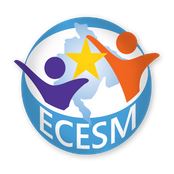
ECESM
Enhancement of cyber educational system of Montenegro
-

EAGLE
EAGLE (EnhAnced Government LEarning): A learning solution for public administration
-

SINC@HE
Support and Inclusion of students with disabilities at Higher Education Institutions in Montenegro
-
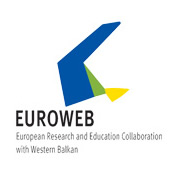
EUROWEB
European Research and Educational Collaboration with Western Balkans
-
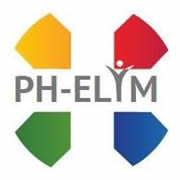
PH-ELYM
Public Health in Montenegro
-

HOMER
Harmonising Open data in the Mediterranean through better access and Reuse of public sector information
-
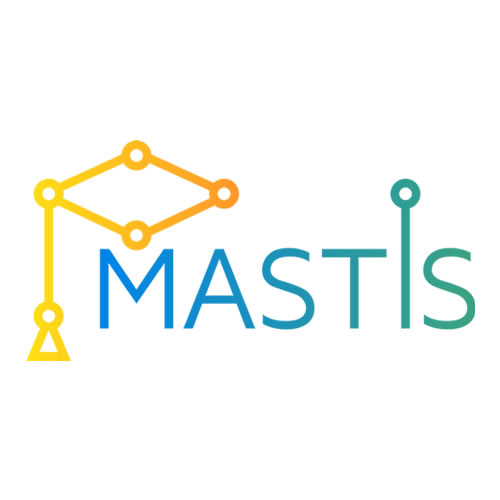
MASTIS
Establishing Modern Master-level Studies in Information Systems
-
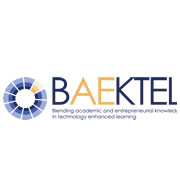
BEAKTEL
Blending academic and entrepreneurial knowledge in technology enhanced learning
-
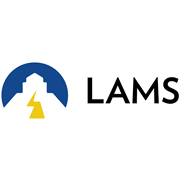
LAMS
Lightning Activity Monitoring SystemLightning Activity Monitoring System
-

ELEMEND
Electrical Energy Markets and Engineering Education
